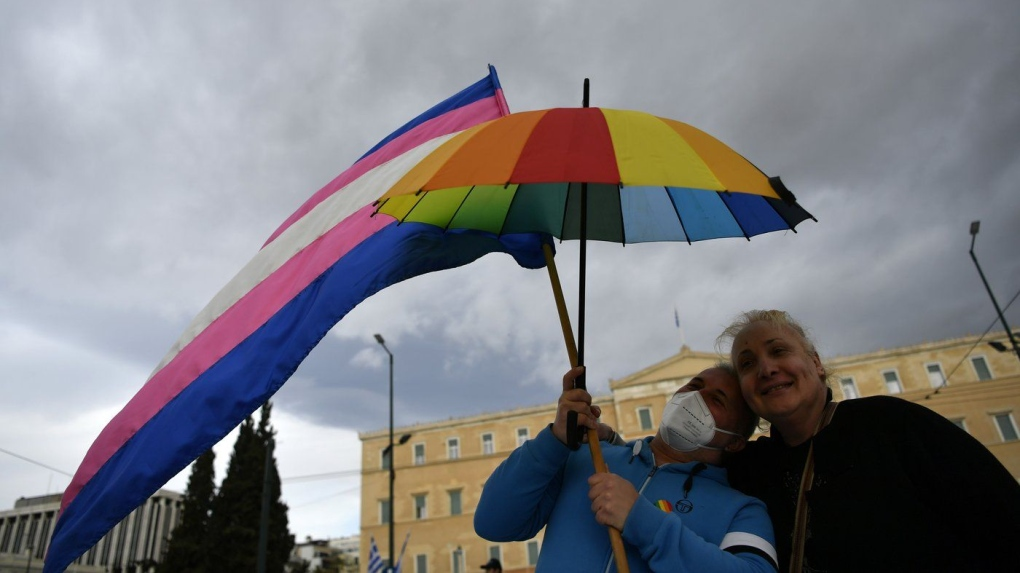
People advocating for a same-sex marriage bill participate in a rally held at central Syntagma Square in Athens, Greece, on February 15, 2024. (Image credit: AP Photo/Michael Varaklas)
In a groundbreaking move that reverberated through the cobblestone streets of Athens and the hearts of its citizens, Greece made a historic stride on Thursday, marking its name as the first Orthodox Christian nation to embrace same-sex civil marriage. Amidst the fervent opposition from the formidable Greek Church, a resolute cross-party majority, comprising 176 lawmakers out of the 300-seat parliament, resolutely stood in favour of the transformative bill put forth by Prime Minister Kyriakos Mitsotakis' centre-right administration.
As the clock ticked towards a momentous decision, tension filled the air, palpable both within the hallowed halls of the parliament and among the throngs of impassioned supporters gathered outside. The outcome, a testament to the nation's evolving social fabric, was met with jubilation and tears of joy. One man, Nikolas, succinctly encapsulated the sentiment of many: "This took a long time to be adopted in our country … but at least it happened and that’s what is important. We are no longer invisible."
However, the path to progress was not devoid of dissenting voices. Opponents of the bill, adorned with prayer books and religious icons, voiced their disapproval nearby, emblematic of the deep-rooted divisions prevailing in society. Yet, amidst the cacophony of contrasting viewpoints, the prevailing tide of change reflected in opinion polls, albeit by a slender margin, indicated a collective leaning towards embracing equality.
The bill, a beacon of hope for the LGBTQ+ community, represents a pivotal moment in Greece's journey towards inclusivity. While hailed as a milestone by proponents, it does not come without its critics. Some lamented the absence of provisions for transgender individuals and the exclusion of surrogacy rights for same-sex couples within Greek borders. Nevertheless, amidst the debates and deliberations, the overarching message of equality and recognition resonated profoundly.
In the aftermath of this historic vote, Greece finds itself at a crossroads, grappling with divergent ideologies and societal norms. Yet, as the dust settles, one thing remains abundantly clear: the winds of change have swept across the ancient land, leaving an indelible mark on its cultural tapestry.















